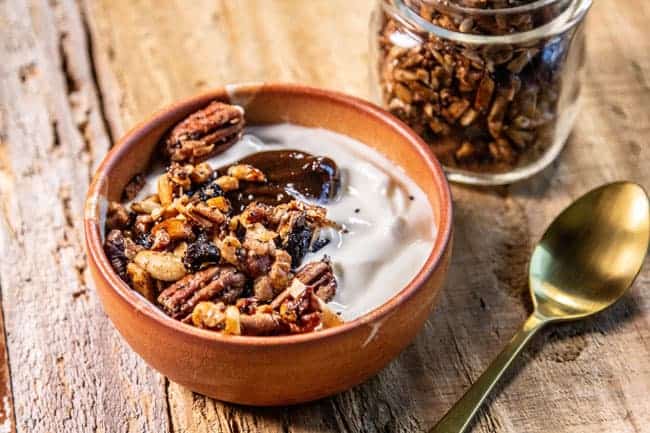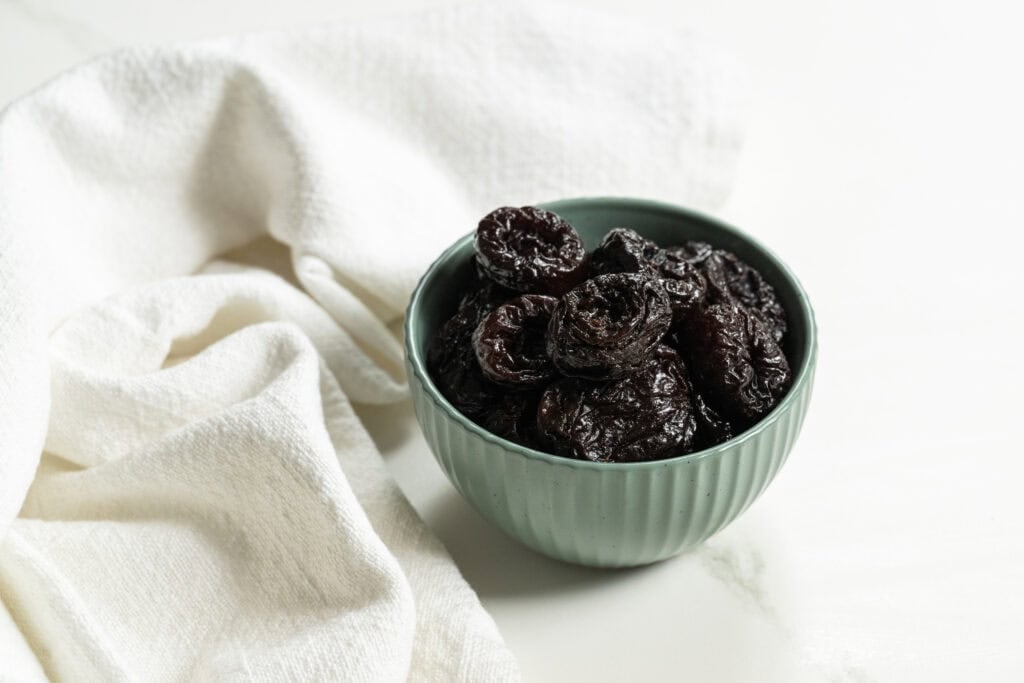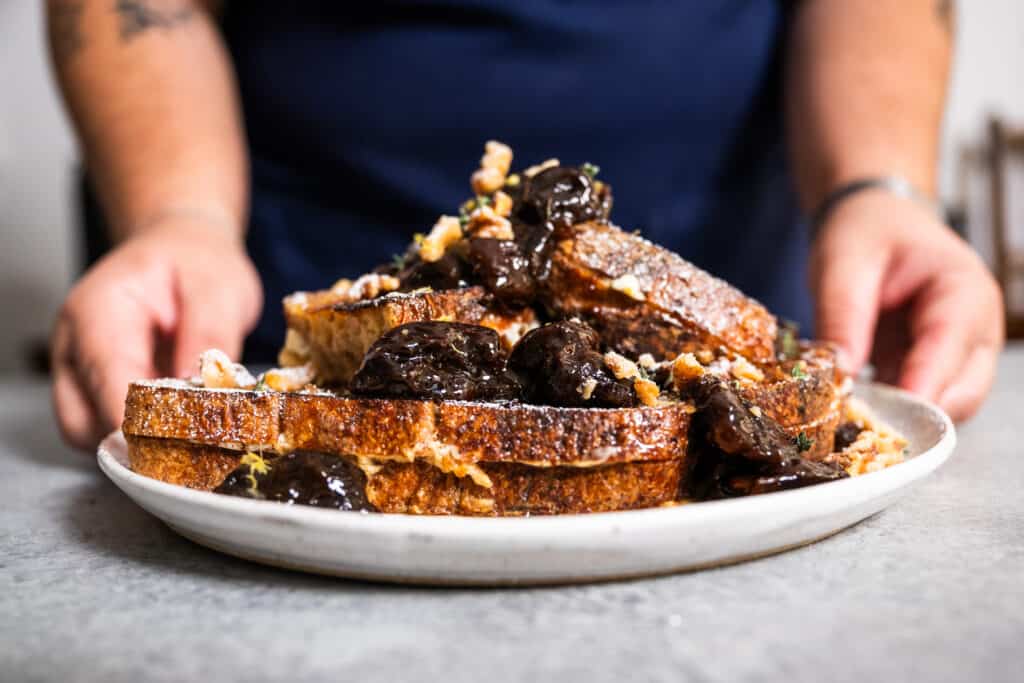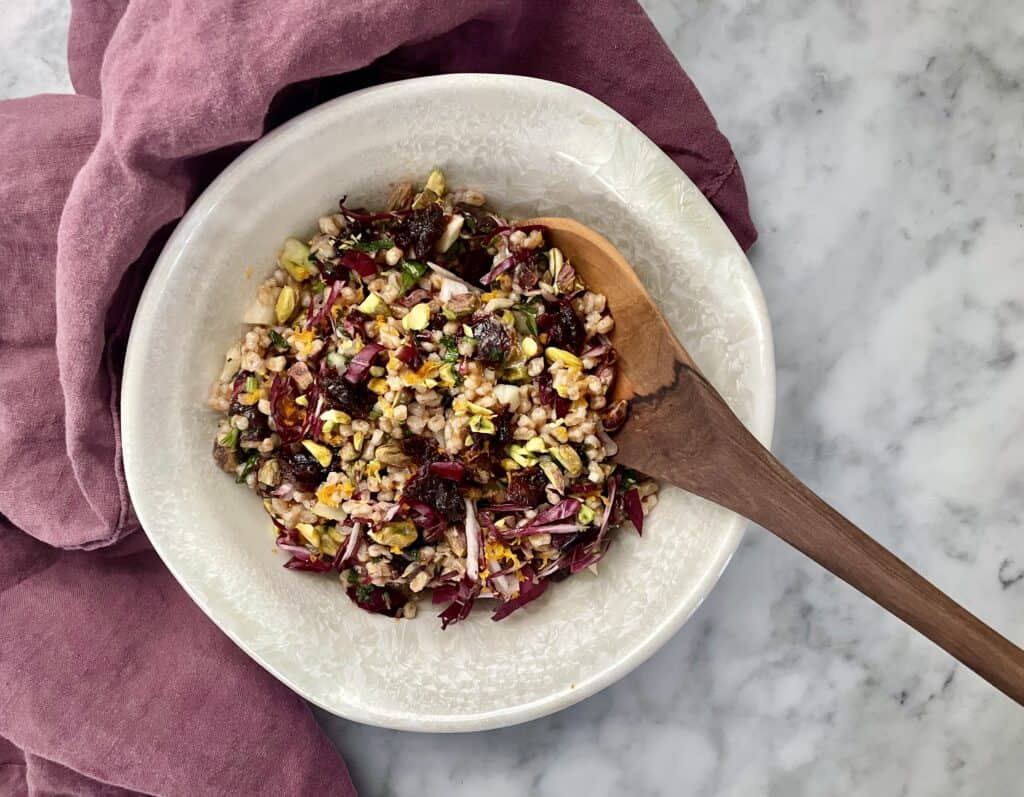
How To Build Bones And Support Your Structure
Leslie Bonci, MPH, RDN, CSSD, LDN, Owner- Active Eating Advice
As a sports dietitian who works with both male and female active individuals and professional athletes, I am an advocate for food choices and eating patterns that support bone health. Too often, I have clients who are diagnosed with osteopenia or osteoporosis or who have experienced stress fractures or stress reactions. Therefore, it is important to be preventative, impactful, and proactive with food choices and eating behaviors that are constructive – not destructive – to bones.

Let’s discuss a few actions you can take to preserve your bones. These recommendations are important for men as well as for women.
HOW TO BUILD BONES: SUPPORT YOUR SUPPORTING STRUCTURE
- Minimize actions that contribute to bone breakdown
- Know your bone-building foods
- Take up an active lifestyle
- Get creative with bone-healthy foods in the kitchen
- Minimize actions that contribute to bone breakdown, which include:
- Being sedentary
- Drinking alcohol to excess
- Smoking
- Crash diets
- Carrying excess body fat
- Not consuming enough protein
- Not consuming enough vitamins and minerals
- Being under-fueled
- Know your bone-building foods. What nutrients help build and maintain bone? There are quite a few worth noting. Here are the nutrients that are involved in optimizing bone health and some foods that you can include in your daily meals and snacks to be sure you’re getting enough of each.

| NUTRIENT | FUNCTION | DAILY AMOUNT | FOOD SOURCES |
| Protein | Bone formation, skeletal muscle strength | 0.4-0.9 grams protein/lb BW
Distribute protein evenly across all meals |
Meat, poultry, fish, eggs, soy foods, legumes, nuts, seeds |
| Calcium | Confers bone strength and structure, skeleton mineralization, bone development, and metabolism | 14-18: 1300 mg19-50: 1000 mg
51-70: F 1200 mg M 1000 mg 71+ 1200 mg |
Dairy foods, fish with bones, fortified cereals, fortified juices, fortified plant “milk” |
| Phosphorus | Skeletal development and bone integrity | 14-18: 1250 mg19+ 700 mg | Meats, dairy foods, beans |
| Magnesium | Helps the body to better use calcium, improves bone strength | 14-18: F 360 mgM 410 mg
19-30: F 310 mg M 400 mg 31 + F: 320 mg M 420 mg |
Leafy greens, nuts/seeds, whole grains, tomato products, chocolate |
| Potassium | Maintain acid/alkaline balance
Neutralize acid load and minimize calcium loss from bone. May suppress calcium resorption and bone mineral dissolution |
14-18: F 2300 mgM 3000 mg
19+: F 2600 mg M 3400 mg |
Beans, lentils, squash, prunes, beef, poultry potatoes, bananas, kiwi, citrus, tomatoes, dairy |
| Zinc | Important for bone metabolism and mineralization | 14-18: F 9 mgM 11 mg
19+ F 8 mg M 11 mg |
Shellfish, beef, pork, poultry, beans. Pumpkin seeds, fortified cereal, dairy |
| Manganese | Bone development and maintenance | 14-18: F 1.6 mg/M 2.2 mg19+ F: 1.8 mg/M 2.3 mg | Whole grains, nuts, leafy vegetables, prunes, tea, soybeans, oats, rice |
| Vitamin D | Maintain adequate serum calcium and phosphate concentrations to enable normal bone mineralization. Involved in bone growth and bone remodeling | 14-18: 15 mcg (600 IU)19-70: 15 mcg (600 IU)
70+: 20 mcg (800 IU)
|
Dairy foods, some plant milk, fortified cereals, cod liver oil, rainbow trout, sockeye salmon, egg yolk |
| Vitamin K | Necessary for bone formation and mineralization | 14-18: 75 mcg19 + F 90 mcg, M 120 mcg | Leafy greens, cabbage family vegetables, prunes, fish, liver, meat, eggs, soy foods esp. natto, green tea, vegetable oils |
| Boron | Important for bone health and development and the metabolism of calcium, magnesium, and vitamin D | No established RDA or AI | Prunes/prune juice, coffee, milk, beans, peanuts, apples, peaches |
| Vitamin C | Necessary for collagen synthesis
-collagen is the main protein in bone, may increase bone mineral density |
14-18 F: 65 mg, M 75 mg19-50: F 75 mg, M 90 mg | Citrus fruits and juices, strawberries, peppers, potatoes, broccoli, tomatoes, cantaloupe |
| Copper | Helps to prevent low bone mineral density | 14-18: 890 mcg19+ 900 mcg | Beef liver, oysters, prunes, potatoes, shiitake mushrooms, sunflower seeds, cashews, crab, tofu, cocoa |

3. Take up an active lifestyle. Incorporate a variety of exercises to strengthen your bones and maintain your overall health. An ideal exercise regimen includes cardio, strength training, and flexibility. Examples of these exercises can be seen below:
| Cardio | Strength Training | Flexibility |
| Brisk walking/hikingJogging/running
Dancing Jumping rope Stair climbing |
ResistanceIsometrics: Own body weight
Free weights Weight machines |
Tai chi
Yoga Pilates
|

- Get creative with bone-healthy foods in the kitchen. Make a point to use different bone-supporting ingredients to add flavor, texture, and color to all of your meals and snacks.
Breakfast Ideas:
- Add chopped prunes to your cereal, oatmeal, or pancakes
- Make oatmeal with milk instead of water
- Swap cereal to pick one fortified with bone-building micronutrients
- Make a smoothie with milk, yogurt, fruits, and spinach
Lunch Ideas:
- Add canned salmon or sardines to a salad
- Throw some beans into a wrap
- Add canned tomatoes to a vegetable soup
- Use a chopped potato instead of rice for a bowl or make the potato the base of lunch
- Toss prunes into a salad
Dinner Ideas:
- Add chopped prunes to Brussels sprouts, or other roasted veggies
- Toss pasta with broccoli, ricotta, and pesto
- Add more produce to the plate with roasted, sauteed, stir-fried, or grilled veggies
- Puree cannellini beans and add to a soup or sauce
Snack Hacks:
- Cubes of cheese, almonds, prunes, shelled edamame
- Turkey jerky, roasted chickpeas, and prunes
- Trail mix with chopped prunes, Cheerios, walnuts
- A smoothie with milk, yogurt, cocoa, nut butter, and banana
- Hummus with bean chips and veggies
- Stuff a cored apple with ricotta and almonds
Your bones support you every day. They are important for everything you do, so it is critical that you take care of them. Try one or all of these tips to keep your bones healthy for now and for your lifetime.